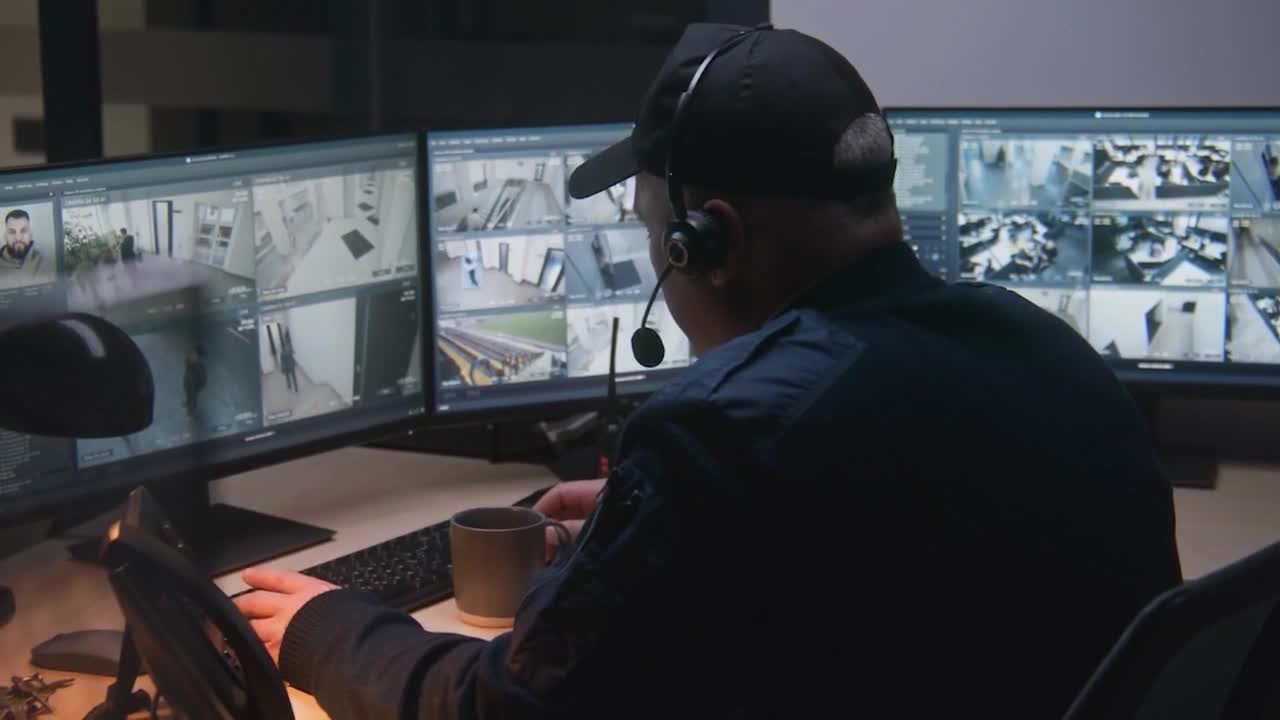AURORA, Colo. — After a discussion with the Aurora City Council Monday night, the Aurora Police Department is one step closer to using facial recognition technology to help identify suspects and solve crimes. However, there is pushback from some city leaders and community members, who see it as more of a problem than a solution.
APD is looking to compare images of an unknown suspect with either a library of mugshots shared through the Colorado Information Sharing Consortium (CISC) or with a database of more than 30 billion images publicly available online, compiled by the company ClearView AI.
“We're not using this in a proactive way,” APD Commander Chris Poppe said during Monday’s Aurora City Council study session. “Our use of this technology will be on the back end as an investigative tool.”
Aurora PD compared using the technology to using fingerprints or DNA evidence in working to solve a case.
In city council documents, APD outlined the following situations as “authorized use of facial recognition information”:
- A reasonable suspicion that an identifiable individual has committed a criminal offense or is involved in or planning criminal (including terrorist) conduct or activity that presents a threat to any individual, the community, or the nation and that the information is relevant to the criminal conduct or activity
- An active or ongoing criminal investigation
- To mitigate an imminent threat to health or safety through short-term situational awareness surveillance or other means
- To assist in the identification of a person who lacks capacity or is otherwise unable to identify themselves(such as incapacitated, deceased, or otherwise at risk)
- To investigate and/or corroborate tips and leads
- To assist in the identification of potential witnesses and/or victims of violent crime
- To support law enforcement in critical incident responses
Aurora City Attorney Pete Schulte said he used the technology when he worked as a police homicide investigator in Texas.

“Basically, it's replacing the individual photo comparison by the detective over and over again, just speeding up that process,” he said. “You can't use this information to detain or arrest somebody. It can only be used as what we call a lead, and a lead that law enforcement can investigate like anything else.”
That’s because of guardrails set by a law passed by the Colorado state legislature in 2022 (Senate Bill 22-113), which requires agencies looking to use the technology to gain approval from a deciding body, like the city council, as well as accountability reports for the vendors. It also bans using the technology to profile people or using it as the sole element to arrest or charge a suspect, requiring law enforcement to do extra investigative work.
- Read Senate Bill 22-113 below
Metropolitan State University of Denver computer science professor Steve Beaty was part of Colorado’s facial recognition task force, which led to the crafting of the 2022 law.

“Colorado is actually kind of leading the nation in this particular area, when it comes to the legalities around when law enforcement is allowed to use facial recognition and when it's not,” he said. “I think that's a very good place to start.”
But legal and ethical concerns over privacy remain. Aurora City Council Member Alison Coombs was the only member to vote against advancing the proposal on Monday.
“I think the scope is extremely broad, the number of potential witnesses and the ability to access their data, whether or not they're interested in having that happen, is deeply concerning to me,” she said during the meeting.
The technology has previously led to wrongful arrests and legal action elsewhere in the U.S. Anaya Robinson, the ACLU of Colorado’s public policy director, sent Denver7 a statement Tuesday, unhappy with the potential for law enforcement to misuse the technology:
“There are a lot of concerns with the use of facial recognition technology in general, and particularly by law enforcement agencies. There is extensive research showing that facial recognition has problems identifying certain populations of people, primarily people of color, women, older individuals, and people with disabilities. This can lead to discriminatory practices by police officers, misidentification, and wrongful arrests of people who are part of those groups.
The Aurora Police Department has a history of issues with its interactions in communities of color. When you're using technologies like facial recognition that do have high misidentification rates, those outcomes are likely to get worse rather than improve.
SB22-113 was passed to begin a framework for regulating law enforcement's use of facial recognition, but the task force that was set up to dive deeper was disbanded. We need substantial and enforceable laws to ensure responsible use of this technology if it is to be used, to prevent mass surveillance of people without their consent and prevent algorithmic discrimination of all Coloradans.”
“In general, I'm a law and order sort of person, but I also think there can be overreach,” Beaty said, acknowledging both the technology’s benefits and concerns. “I would just ask for transparency [from law enforcement and companies] so that we can make informed decisions about it instead of responding too little or too much. Those are typically not the right thing.”
Aurora City Council will consider approving APD’s use of the technology during its meeting on Oct. 20.
Other law enforcement in Colorado already use facial recognition technology, including the Arvada Police Department, which calls it “an invaluable tool.”
The Arapahoe County Sheriff’s Office also uses facial recognition technology, but only uses data from the Colorado Information Sharing Consortium (CISC).






